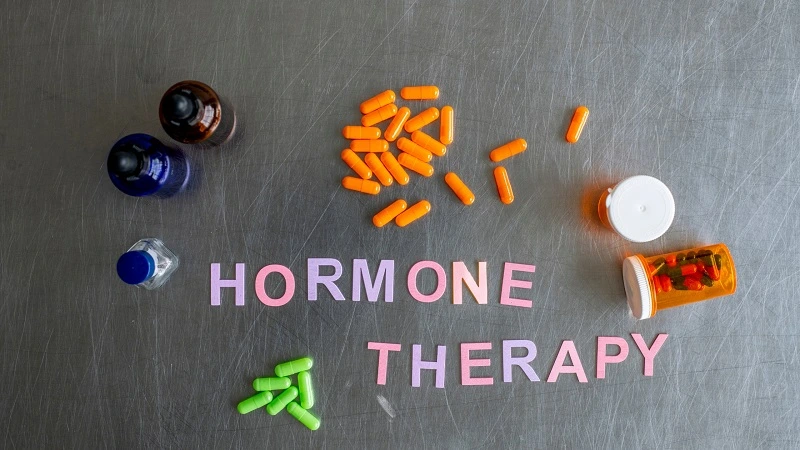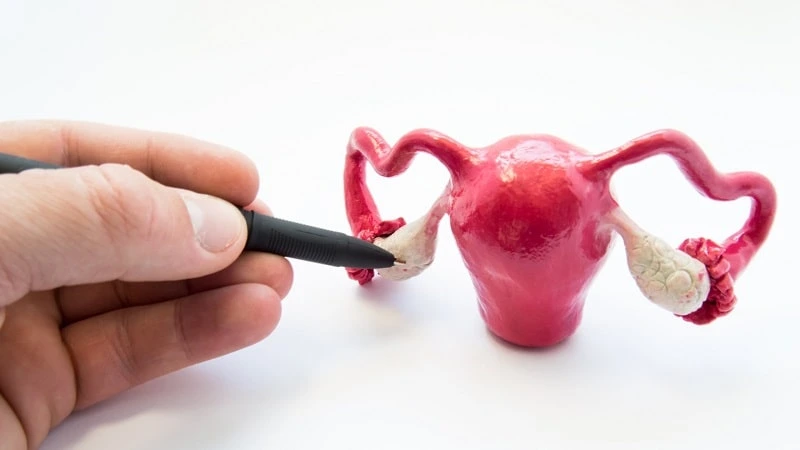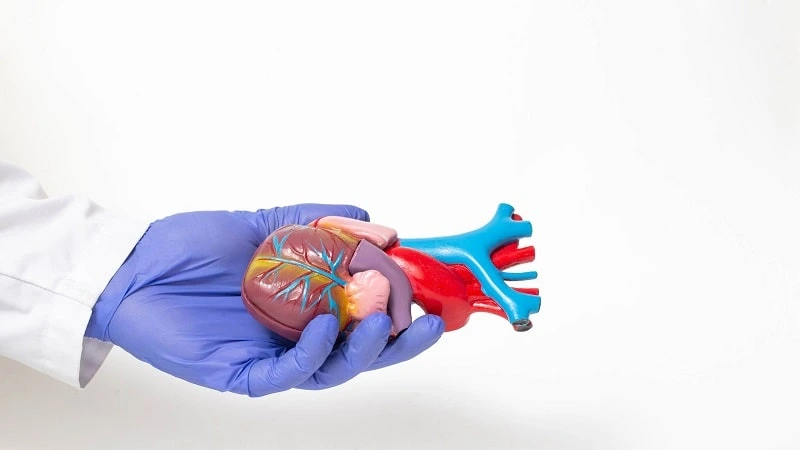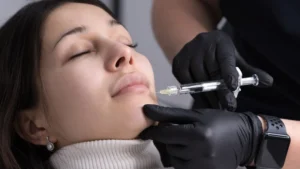Menopause, a natural phase marking the end of a woman’s reproductive years, brings about various physical and emotional changes. However, when menopause occurs after a total hysterectomy, it can present unique challenges and uncertainties. A total hysterectomy involves the surgical removal of the uterus and may also include the removal of the ovaries. Women who undergo this procedure often wonder how long does menopause last after total hysterectomy and what to expect during this transitional phase.
In this article, we will explore the duration of menopause following a total hysterectomy and shed light on the factors that can influence its length. By understanding the duration and potential implications of menopause after a total hysterectomy, women can better prepare themselves for this significant life transition and seek appropriate support and guidance along the way.
What is Menopause?
Menopause is a natural biological process that signifies the end of a woman’s reproductive years. It is characterized by the cessation of menstrual cycles and a decline in hormone production, particularly estrogen and progesterone.
During menopause, women experience a variety of physical and emotional symptoms, such as hot flashes, night sweats, mood swings, and vaginal dryness.
Read More: How to Boost Immune System during Menopause?
When menopause occurs after a total hysterectomy, which involves the removal of the uterus, and sometimes the ovaries, it can lead to an abrupt onset of menopause symptoms.
Unlike natural menopause, which typically occurs gradually over several years, menopause following a total hysterectomy often happens immediately or shortly after the surgery.

Menopause After Total Hysterectomy
A total hysterectomy removes the uterus, and if the ovaries are also removed (oophorectomy), it induces surgical menopause. In this case, menopause begins immediately after the surgery because the ovaries, which produce the majority of the body’s estrogen, are no longer present.
However, if the ovaries are preserved during the hysterectomy, menopause may occur naturally at a later stage, similar to women who have not undergone the procedure.
Factors Influencing Menopause Duration
Several factors can influence the duration of menopause after a total hysterectomy:
- Age at the time of hysterectomy: Women who undergo a hysterectomy at a younger age may experience a longer duration of menopause symptoms since they have more years ahead until natural menopause.
- Surgical techniques: The specific surgical techniques used during the hysterectomy can affect menopause duration. For instance, if the blood supply to the ovaries is compromised during the surgery, it may result in an immediate menopausal state.
- Preservation or removal of the ovaries: If the ovaries are preserved during the hysterectomy, the natural decline in hormone production may occur later, whereas their removal will lead to an abrupt onset of menopause.
- Hormone replacement therapy (HRT): The use of hormone replacement therapy, which involves the supplementation of estrogen and progesterone, can impact the duration of menopause symptoms. HRT can alleviate menopausal symptoms and potentially shorten their duration.
- Other individual factors: Individual variations, such as overall health, genetics, and lifestyle choices, can also influence the duration of menopause after a total hysterectomy.
Read More: Menopause and Anger Toward Husbands: All You Need to Know

Factors Affecting Menopause Duration After Total Hysterectomy
Several factors can influence the duration of menopause after a total hysterectomy. Understanding these factors can provide valuable insights into how long menopausal symptoms may persist and what to expect during this phase.
1. Age at the Time of Hysterectomy
The age at which a woman undergoes a total hysterectomy can play a role in determining the duration of menopause symptoms.
Women who have the procedure at a younger age may experience a longer duration of menopause since they have more years until they reach natural menopause.
Conversely, women who have a hysterectomy closer to their natural menopause age may have a shorter duration of menopausal symptoms.
2. Surgical Techniques Used
The specific surgical techniques employed during the hysterectomy can affect menopause duration. If the blood supply to the ovaries is compromised during the surgery, it can lead to an immediate onset of menopause.
This can occur when the surgeon removes the ovaries, which are responsible for producing estrogen, or if there is damage to the blood vessels that supply the ovaries.
3. Preservation or Removal of the Ovaries
The decision to preserve or remove the ovaries during a total hysterectomy also impacts menopause duration. When the ovaries are preserved, the natural decline in hormone production may occur later, similar to women who have not undergone a hysterectomy.
In contrast, if the ovaries are removed, menopause occurs immediately since the primary source of estrogen production is eliminated.
Read More: How to Treat Menopause Body Odor?

4. Hormone Replacement Therapy (HRT)
Hormone replacement therapy (HRT) involves the use of medications that provide synthetic estrogen and progesterone to alleviate menopausal symptoms.
The use of HRT can impact the duration of menopause symptoms after a total hysterectomy. By providing hormonal support, HRT can help manage and alleviate symptoms, potentially shortening their duration.
However, it’s important to consult with a healthcare professional to discuss the benefits and risks associated with HRT.
5. Other Individual Factors
Individual variations can also influence the duration of menopause after a total hysterectomy. Factors such as overall health, genetics, and lifestyle choices can impact how long menopausal symptoms persist.
Women who lead a healthy lifestyle, maintain a balanced diet, and engage in regular physical activity may experience a smoother transition through menopause.
Average Duration of Menopause After Total Hysterectomy
The duration of menopause after a total hysterectomy can vary among women. While there is no set timeframe that applies universally, research studies provide insights into the average duration of menopausal symptoms following this surgical procedure.
Research Studies and Findings
Numerous studies have examined the average duration of menopause after a total hysterectomy. However, it is important to note that the results may vary due to differences in study design, participant characteristics, and follow-up duration.
A study published in the Journal of Women’s Health involved over 2,000 women who had undergone a total hysterectomy. The researchers found that the median duration of menopausal symptoms after the surgery was approximately four years.
Read More: Advice for Husbands After Hysterectomy?
This means that for half of the women in the study, their symptoms persisted for less than four years, while the other half experienced symptoms for more than four years.
Another study published in Obstetrics & Gynecology International focused on women who had a total hysterectomy with ovarian preservation.
The findings showed that menopausal symptoms lasted for an average of two to five years after the surgery, with variations depending on individual factors.
Variability in Menopause Duration
It is important to recognize that menopause duration can vary widely among women. Some women may experience shorter durations of menopausal symptoms, while others may have symptoms that persist for a longer period.
The variations can be influenced by factors such as individual health, genetics, lifestyle choices, and the specific circumstances of the hysterectomy.
Statistical Data on the Average Duration
Statistical data on the average duration of menopause after total hysterectomy can provide a general understanding. However, it is important to interpret these numbers with caution as they may not reflect an individual’s experience.
On average, menopausal symptoms may last between two to five years following a total hysterectomy. However, it is crucial to remember that this is an estimate and individual experiences may differ significantly.
Symptoms and Challenges During Menopause After Total Hysterectomy
Menopause following a total hysterectomy can bring about various symptoms and challenges due to the sudden hormonal changes that occur.
Common Symptoms Experienced During Menopause
- Hot flashes and night sweats: These sudden feelings of heat, often accompanied by sweating and flushing, are a hallmark of menopause. They can occur during the day (hot flashes) or at night (night sweats), leading to disrupted sleep and discomfort.
- Vaginal dryness and discomfort: Decreased estrogen levels can cause vaginal dryness, itching, and discomfort during intercourse, making sexual activity uncomfortable or painful.
- Mood swings and emotional changes: Hormonal fluctuations can contribute to mood swings, irritability, anxiety, and feelings of sadness or depression.
- Sleep disturbances: Menopause can disrupt sleep patterns, leading to difficulties falling asleep, staying asleep, or experiencing restful sleep.
- Changes in sexual desire: Some women may experience a decrease in sexual desire or libido during menopause, which can impact intimate relationships.
Read More: Hot Flashes in First Trimester: Understanding and Managing Pregnancy’s Unexpected Heatwaves

Specific Challenges Faced by Women After Total Hysterectomy
- Abrupt onset of menopause symptoms: Menopause after a total hysterectomy often occurs suddenly, with symptoms appearing shortly after the surgery. This abrupt transition can be challenging to adjust to both physically and emotionally.
- Hormone imbalances: With the removal of the uterus and possibly the ovaries, hormonal imbalances can occur. These imbalances can exacerbate menopause symptoms and contribute to the challenges faced during this phase.
- Long-term health implications: Menopause following a total hysterectomy can have implications for long-term health, such as an increased risk of osteoporosis due to decreased estrogen levels and potential cardiovascular health considerations.
Coping Strategies and Treatment Options for Managing Menopausal Symptoms
- Hormone replacement therapy (HRT): HRT involves the use of medications that provide synthetic hormones to alleviate menopausal symptoms. It can effectively manage symptoms such as hot flashes, vaginal dryness, and mood swings. However, the decision to pursue HRT should be made in consultation with a healthcare professional, considering individual factors and potential risks.
- Lifestyle modifications: Adopting a healthy lifestyle can help manage menopausal symptoms. Regular exercise, a balanced diet rich in nutrients, stress reduction techniques, and adequate sleep can contribute to overall well-being during this transitional phase.
- Vaginal lubricants and moisturizers: Over-the-counter vaginal lubricants and moisturizers can provide relief from vaginal dryness and discomfort. They help restore moisture and enhance comfort during sexual activity.
- Psychological support: Seeking emotional support through therapy, support groups, or counseling can help women navigate the emotional challenges associated with menopause. It provides a safe space to express concerns, learn coping strategies, and gain perspective.
Long-Term Health Implications of Menopause After Total Hysterectomy
Menopause following a total hysterectomy can have long-term health implications due to the hormonal changes that occur.
It is important for women to be aware of these implications and take proactive measures to maintain their health and well-being.
Impact on Bone Health and Increased Risk of Osteoporosis
- Decreased estrogen levels: After a total hysterectomy, estrogen levels decline significantly since the ovaries, the primary source of estrogen production, may be removed. Estrogen plays a crucial role in maintaining bone density.
- Risk of osteoporosis: Reduced estrogen levels can lead to accelerated bone loss, increasing the risk of osteoporosis—a condition characterized by weakened bones that are more susceptible to fractures.
- Importance of bone health: Women who have undergone a total hysterectomy should focus on strategies to maintain bone health. This includes adequate intake of calcium and vitamin D, regular weight-bearing exercises, and discussing bone health with healthcare professionals.
Cardiovascular Health Considerations
- Cardiovascular changes: Estrogen has a protective effect on the cardiovascular system. Reduced estrogen levels after a total hysterectomy may contribute to an increased risk of cardiovascular diseases such as heart disease and stroke.
- Importance of a heart-healthy lifestyle: Adopting a heart-healthy lifestyle is crucial for women experiencing menopause after a total hysterectomy. This includes regular exercise, a balanced diet, maintaining a healthy weight, managing blood pressure and cholesterol levels, and avoiding smoking.

Emotional and Psychological Effects of Menopause
- Emotional well-being: Menopause, especially after a total hysterectomy, can bring about emotional and psychological changes. Hormonal fluctuations can contribute to mood swings, irritability, anxiety, and feelings of sadness or depression.
- Seeking support: Women experiencing emotional challenges during menopause should not hesitate to seek support from healthcare professionals, therapists, or support groups. Open communication, self-care practices, and stress reduction techniques can also help alleviate emotional distress.
Support and Resources for Women Experiencing Menopause After Total Hysterectomy
Women who experience menopause after a total hysterectomy may face unique challenges and require support during this transitional phase.
Various resources and support networks are available to help women navigate this journey and improve their overall well-being.
Importance of Seeking Medical Advice and Support
- Consulting with healthcare professionals: It is crucial for women to seek guidance from healthcare professionals who specialize in menopause and women’s health. These professionals can provide accurate information, address concerns, and offer personalized recommendations based on individual circumstances.
- Regular check-ups and screenings: Regular check-ups and screenings are essential to monitor overall health, including bone density assessments, cardiovascular health evaluations, and discussions about hormone replacement therapy or other treatment options.
Role of Healthcare Professionals in Managing Menopausal Symptoms
- Hormone replacement therapy (HRT): Healthcare professionals can discuss the benefits and risks of hormone replacement therapy and help women make informed decisions about its use. They can prescribe appropriate hormone therapy based on individual needs and monitor its effectiveness and safety.
- Non-hormonal treatment options: Healthcare professionals can recommend non-hormonal treatments, such as selective serotonin reuptake inhibitors (SSRIs) or other medications, to manage specific menopausal symptoms such as hot flashes or mood changes.
Support Groups and Online Communities
- Local support groups: Joining local support groups specifically tailored for women going through menopause after a total hysterectomy can provide a sense of community and allow for sharing experiences and coping strategies.
- Online communities and forums: Online platforms and forums dedicated to menopause and hysterectomy provide an opportunity to connect with others facing similar challenges. These communities offer a safe space for asking questions, seeking advice, and receiving support from women who have gone through or are going through similar experiences.
Lifestyle Changes and Self-Care Practices
- Healthy lifestyle habits: Adopting a healthy lifestyle can positively impact overall well-being during menopause. Regular exercise, a balanced diet, adequate sleep, and stress reduction techniques can help manage symptoms and promote physical and emotional well-being.
- Self-care practices: Engaging in self-care practices such as relaxation exercises, mindfulness, hobbies, and activities that bring joy can help alleviate stress, improve mood, and enhance overall quality of life.
Conclusion
Menopause after a total hysterectomy is a significant life transition that brings about hormonal changes and various symptoms.
Understanding the duration, symptoms, and challenges associated with this phase is crucial for women undergoing this experience.
While the average duration of menopause after a total hysterectomy can vary, research suggests it can last between two to five years.
However, every woman’s experience is unique, and individual factors such as age, surgical techniques, ovarian preservation, and hormone replacement therapy can influence the duration and severity of menopausal symptoms.
Seeking support from healthcare professionals, joining support groups, and accessing online resources can provide valuable guidance and emotional support during this transitional phase.
Prioritizing bone health, cardiovascular health, and emotional well-being through lifestyle changes, regular check-ups, and appropriate treatments can help women navigate menopause after a total hysterectomy with better overall health and improved quality of life.
FAQs (Frequently Asked Questions)
Q: Can menopause occur immediately after a total hysterectomy?
A: Yes, menopause can occur immediately after a total hysterectomy if the ovaries are removed.
Q: How long do menopausal symptoms typically last after a total hysterectomy?
A: On average, menopausal symptoms can last between two to five years after a total hysterectomy.
Q: Can hormone replacement therapy (HRT) help manage menopausal symptoms?
A: Yes, HRT can help alleviate menopausal symptoms by providing hormonal support. However, its use should be discussed with a healthcare professional.
Q: What are the long-term health implications of menopause after a total hysterectomy?
A: Menopause after a total hysterectomy can have implications for bone health, cardiovascular health, and emotional well-being.
Q: Are there support groups available for women experiencing menopause after a total hysterectomy?
A: Yes, there are local support groups and online communities specifically focused on menopause and hysterectomy.
Q: How can women manage menopausal symptoms without hormone replacement therapy?
A: Non-hormonal treatments, such as selective serotonin reuptake inhibitors (SSRIs) or other medications, can be recommended by healthcare professionals.
Q: What lifestyle changes can help manage menopausal symptoms?
A: Adopting a healthy lifestyle that includes regular exercise, a balanced diet, adequate sleep, and stress reduction techniques can help manage symptoms.
Q: Is it necessary to have regular check-ups during menopause after a total hysterectomy?
A: Regular check-ups are important for monitoring overall health, bone density, cardiovascular health, and discussing treatment options.
Q: Can menopause after a total hysterectomy affect sexual desire?
A: Yes, menopause can impact sexual desire, but open communication and exploring alternative methods of intimacy can help maintain a satisfying sexual relationship.
Medical References
- Hickey, M., & Davis, S. R. (2016). Menopause and Hysterectomy. In BMJ Clinical Evidence (Vol. 2016).
- North American Menopause Society. (2017). The 2017 hormone therapy position statement of The North American Menopause Society. Menopause, 24(7), 728–753.
- Santoro, N., & Randolph, J. F. (2011). Reproductive hormones and the menopause transition. Obstetrics and Gynecology Clinics, 38(3), 455–466.
- Sood, R., Faubion, S. S., Kuhle, C. L., & Thielen, J. M. (2020). Menopause and cardiovascular disease: A statement from the American Heart Association. Circulation, 142(16), e506–e532.
- Stuenkel, C. A., Davis, S. R., Gompel, A., Lumsden, M. A., Murad, M. H., Pinkerton, J. V., Rees, M., & Santen, R. J. (2016). Treatment of symptoms of the menopause: An Endocrine Society Clinical Practice Guideline. The Journal of Clinical Endocrinology & Metabolism, 101(11), 3821–3840.
- The American College of Obstetricians and Gynecologists. (2014). ACOG practice bulletin no. 141: Management of menopausal symptoms. Obstetrics & Gynecology, 123(1), 202–216.



